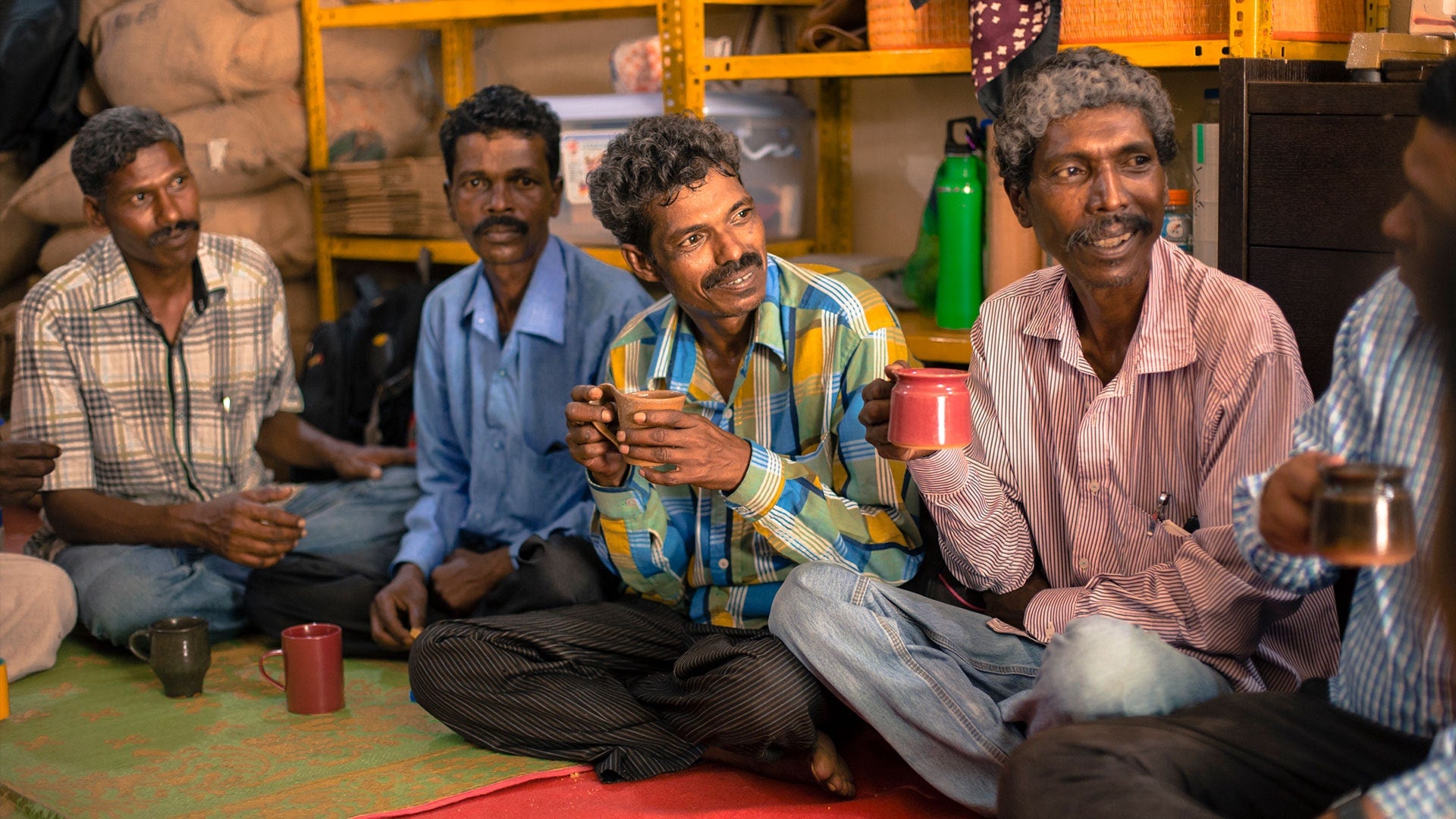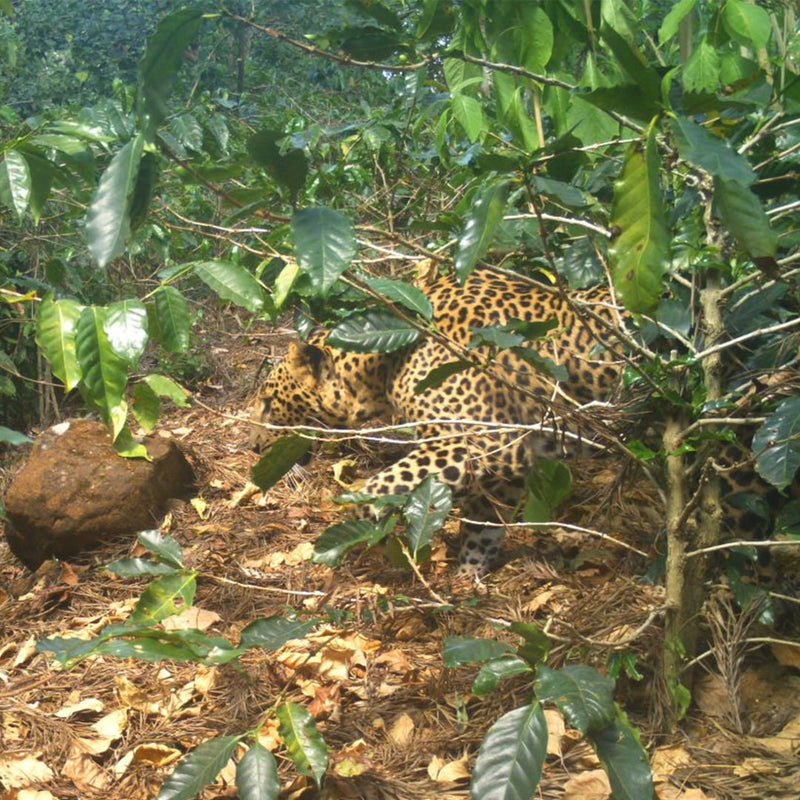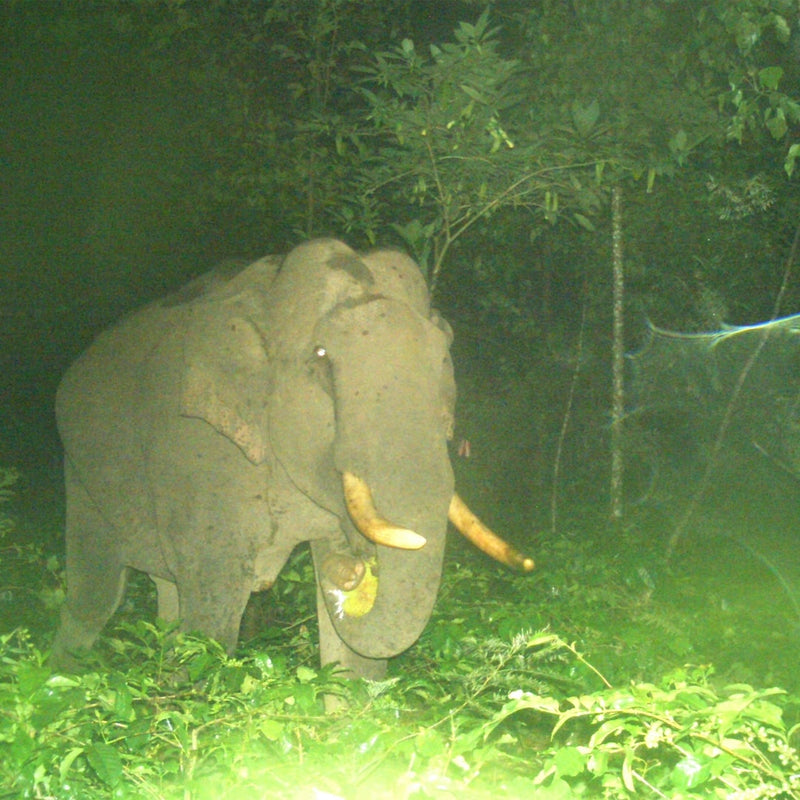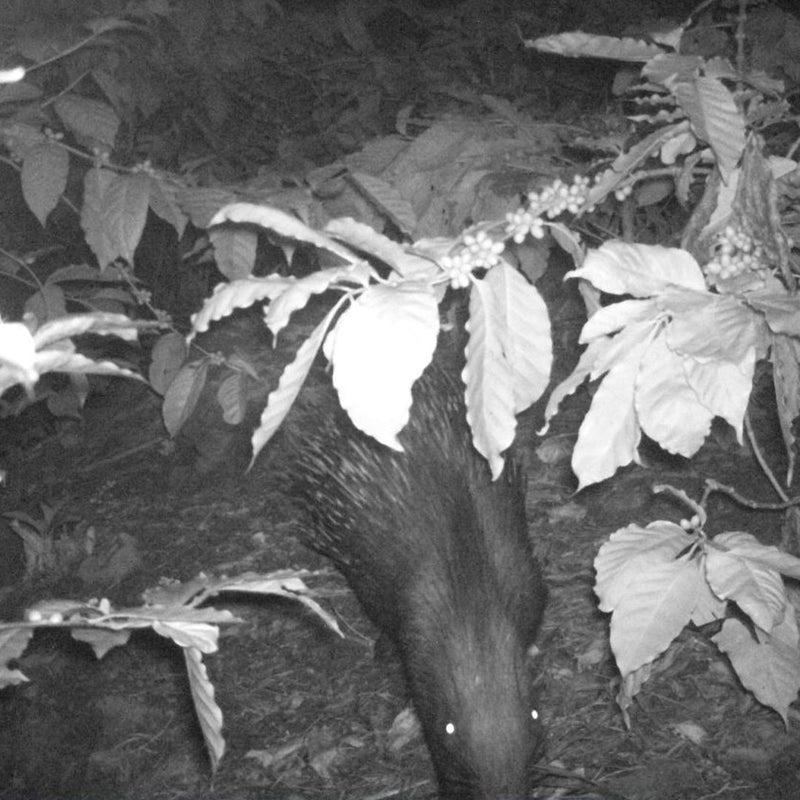1000 Year Brew
Our Impact
Real change, from farm to forest
Building fairer coffee systems requires a multi-faceted approach. Our processes have an impact on the people, their livelihoods, the coffee quality and the biodiversity on-ground. This is why we monitor our impact on a regular basis, so we can adapt, improve and create lasting change.
As a first step, we seek fairness by working exclusively with smallholder coffee growers across the country. They are a vital part of the global coffee market, and about 60% of the total market supply worldwide comes from them.
I always knew conserving biodiversity was important but we constantly faced pressures to remove shade trees and forest cover and use pesticides. Partnering with Black Baza has changed this totally. Dasegowda, BR Hills
Despite their contributions, these farmers are rarely recognised for their efforts and have faced the brunt of inequalities in revenue distribution across the coffee value chain. When we started working in the Biligiri Rangana Hills (BR Hills), many producers earned 56% below the market price. Coffee was traded without being weighed, and there was no system of accountability. We’ve had to build fair, transparent trade systems from the ground up. High household debt and economic insecurity aren’t just livelihood issues — they also drive environmental degradation. As Elinor Ostrom’s work reminds us, local communities are capable of managing common resources, but only when their rights and agency are recognised.
We know that shade-grown coffee can support biodiversity, but our partner producers go many steps further — restoring native vegetation, regenerating indigenous tree species, and nurturing multi-tiered forest canopies that bring nature back. They care for their land as kin, and their farms are living, breathing examples of how coffee cultivation and biodiversity conservation are two sides of the same coin.







